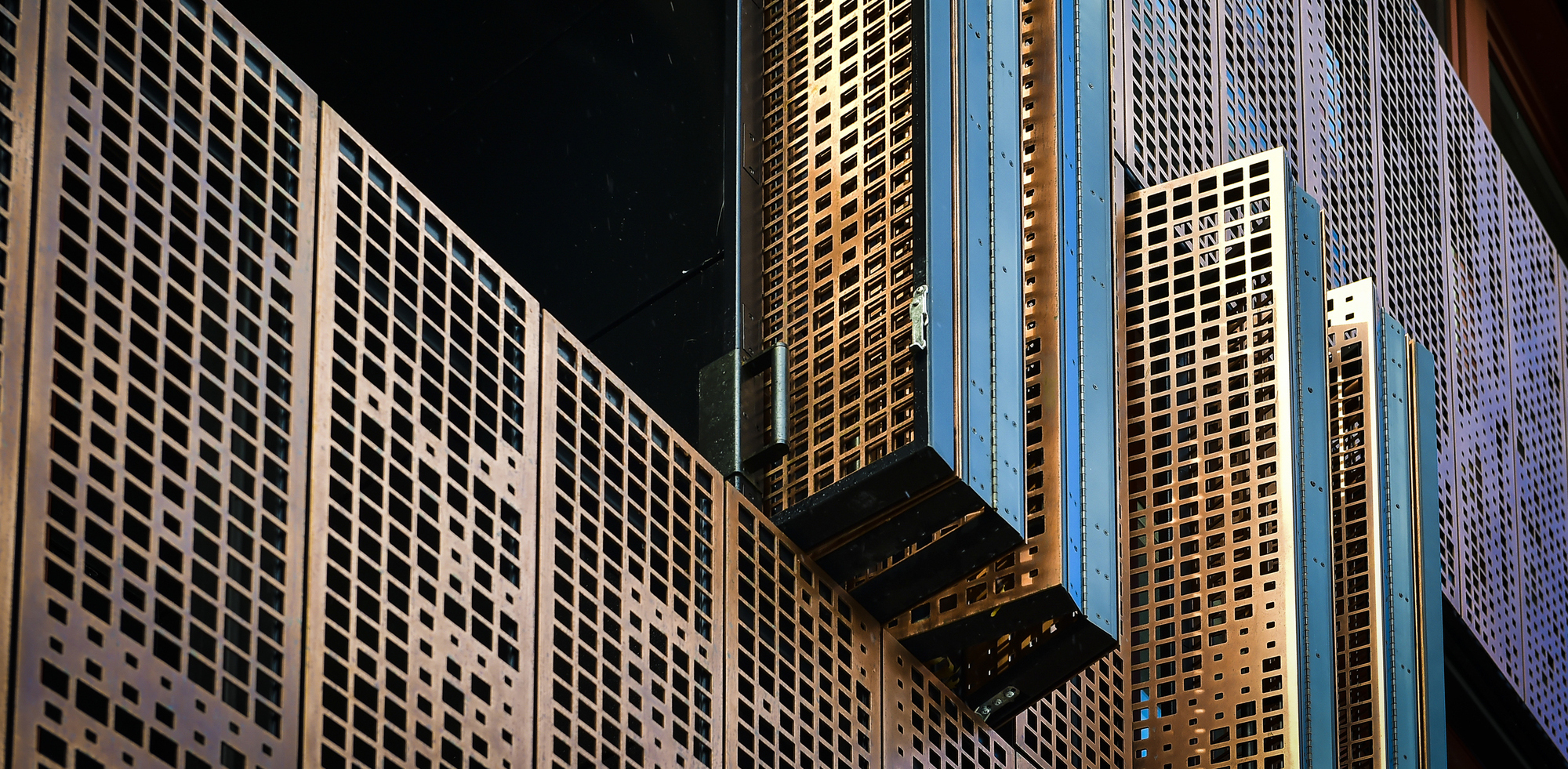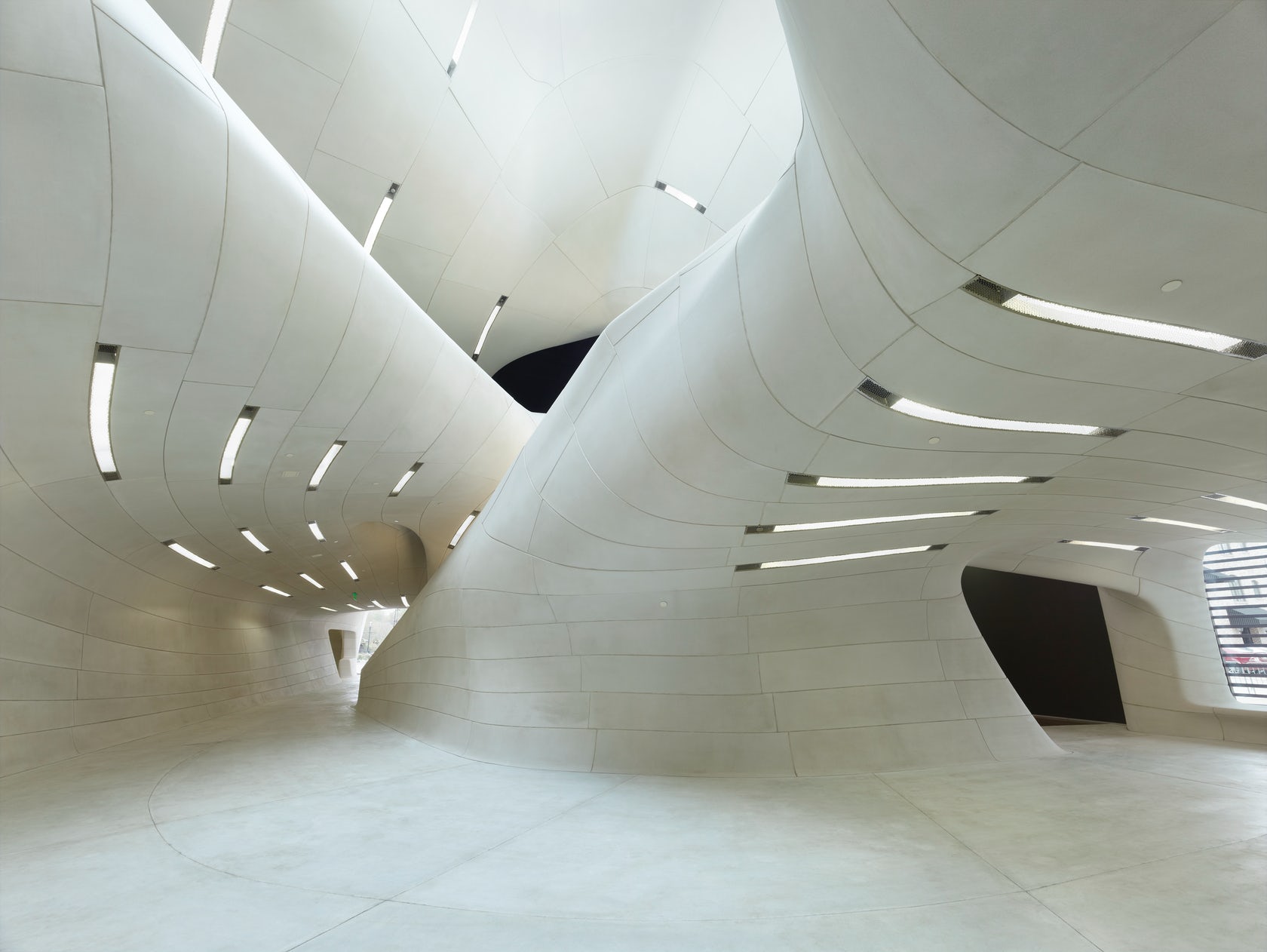Architizer is thrilled to announce that the 2026 A+Product Awards is open for submissions! The clock is ticking — get your products in front of the AEC industry’s most renowned designers by submitting today.
Though not used in architecture as frequently as steel, aluminum and zinc, copper makes just as stunning a metallic finish for building exteriors and interiors alike. Yet its green patina developed over a long period of time divides the design masses: It’s an attractive, naturally occurring characteristic to some, but an unpolished eyesore to others. If you or your clients are exploring what look you can achieve with this material, consider some of the winners of the Copper in Architecture Awards and learn which manufacturers helped these projects stand out in the crowd:


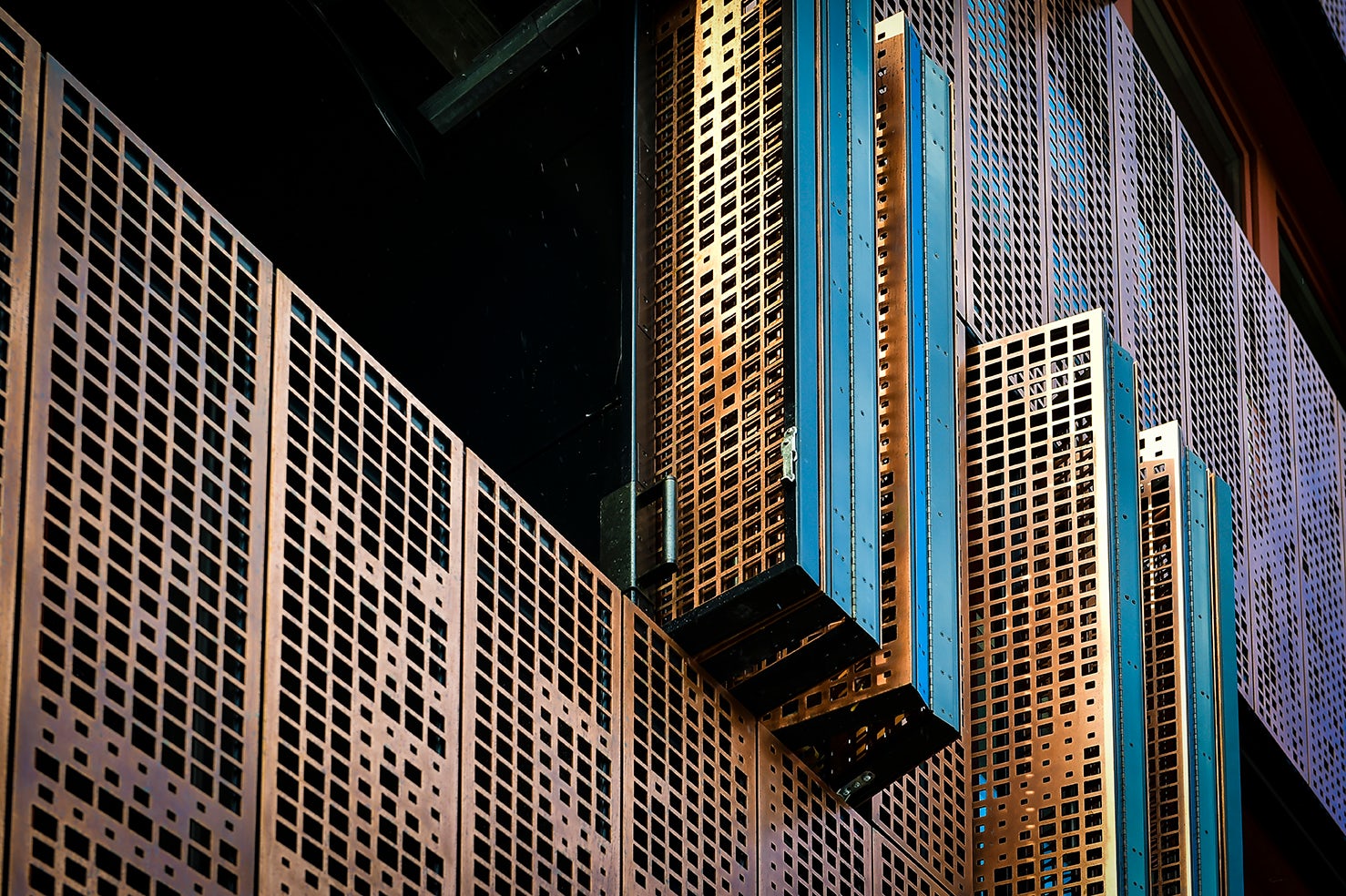
Photos by Tai Zhang
Aperture 538 by Luca Andrisani Architects, Brooklyn, New York
Copper Screen by Hi-Tech Metals
It may look like Corten steel, but the striking façade of this 10-unit multifamily residence is actually a screen made of copper. The defining feature of the building, the screen sports a perforated, abstracted pattern of the Brooklyn Bridge as well as operable shutters that, when adjusted by the resident, animates an ever-changing façade.



Photos by Cunningham Architects
Clearfork Campus by Cunningham Architects, Fort Worth, Texas
Sheet Metal by Ramon Franklin
This project really comprises three pre-engineered steel shed structures that allude to the cattle ranch buildings that once stood in the area. Nearly 40 tons of copper (in the form of roof and wall panels) were used to clad the three buildings to establish a “humble” material palette but also a “living” quality as the material patinates.
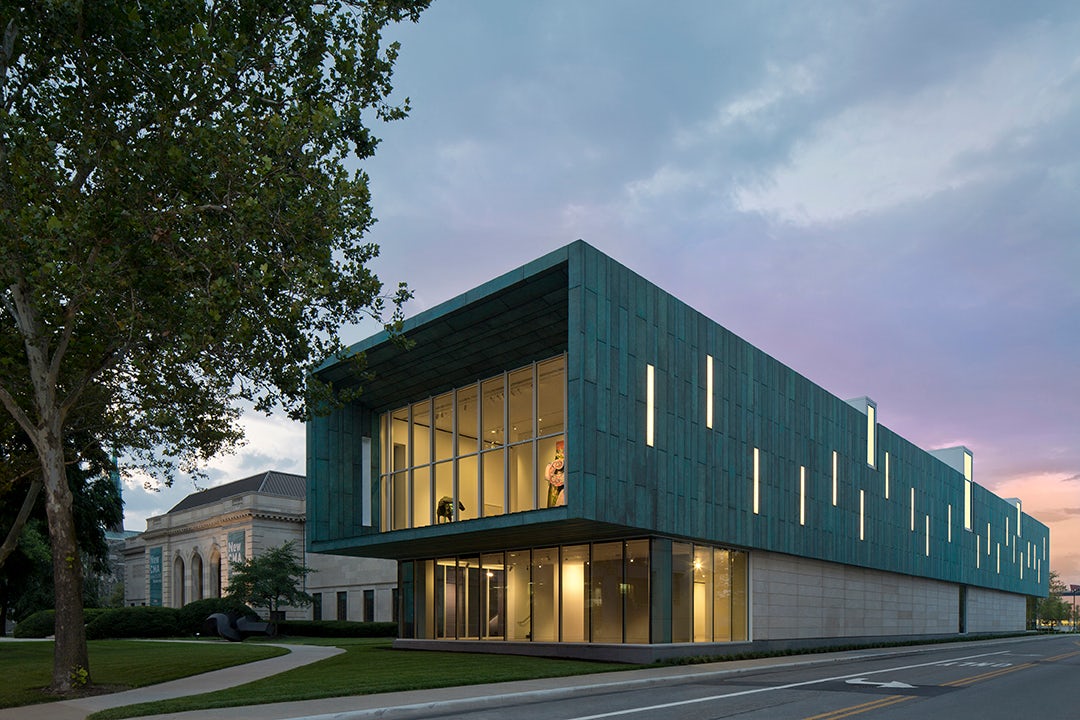
© Brad Feinknopf


Photos by Brad Feinknopf
Columbus Museum of Art, Margaret M. Walter Wing by DesignGroup, Columbus, Ohio
Copper by Zahner
The architect chose to sheath this 50,000-square-foot wing of the Columbus Museum of Art with pre-patinated copper, in a sense using a time-honored material in a contemporary way to both counter and complement the bronze detailing of the historic wing as well as reference the nearby First Congregation Church’s naturally oxidized copper roofs and spires. The copper cladding is also found in the building interiors. The wall panels are rainscreen products engineered and fabricated by Keith Panel Systems using pre-patinated sheets from Zahner. Zahner also fabricated the custom flashing and standing seam roof.


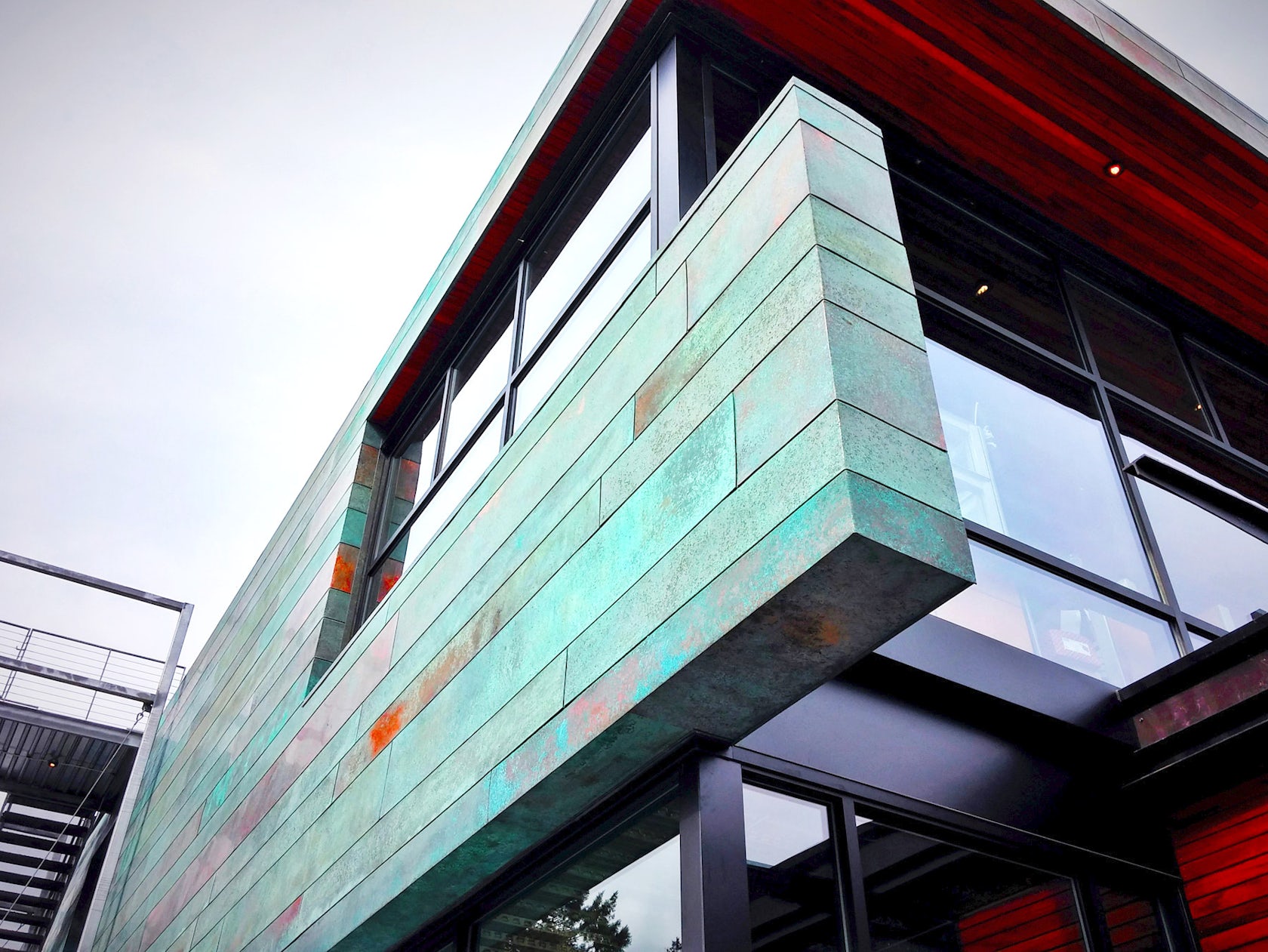
Photos by Dissimilar Metal Design
Eagle Harbor Market Building by Coates Design Architects, Bainbridge Island, Washington
Architectural Metal by Dissimilar Metal Design
Housing retail shops, restaurants and an event space, the building greets passengers disembarking from the Bainbridge Island ferry with indigenous gardens and richly detailed and patinated copper. The panels, sent to a local company to apply the patina, were cut to 5-foot uniform lengths to facilitate handling and were installed with joints staggered.



Photos by Christopher Barrett
Wood House by Brininstool + Lynch, Chicago, Ill.
Sheet Metal by Chicago Copper & Iron Works
Draped over the east windows of this home, an eye-catching hand-patinated copper screen seems to peer out from behind a brick-masonry volume and features perforations in a mod square-and-rectangle pattern that varies in scale. The eye follows as the screen wraps around to become a ribbon on the other sides. Visually connecting exterior and interior, the panels (perforated as well as solid) were also used as decorative elements inside the house, such as the fireplace surround. The units were attached via a concealed steel frame supported by the main structure of the house’s roof.
Architizer is thrilled to announce that the 2026 A+Product Awards is open for submissions! The clock is ticking — get your products in front of the AEC industry’s most renowned designers by submitting today.
